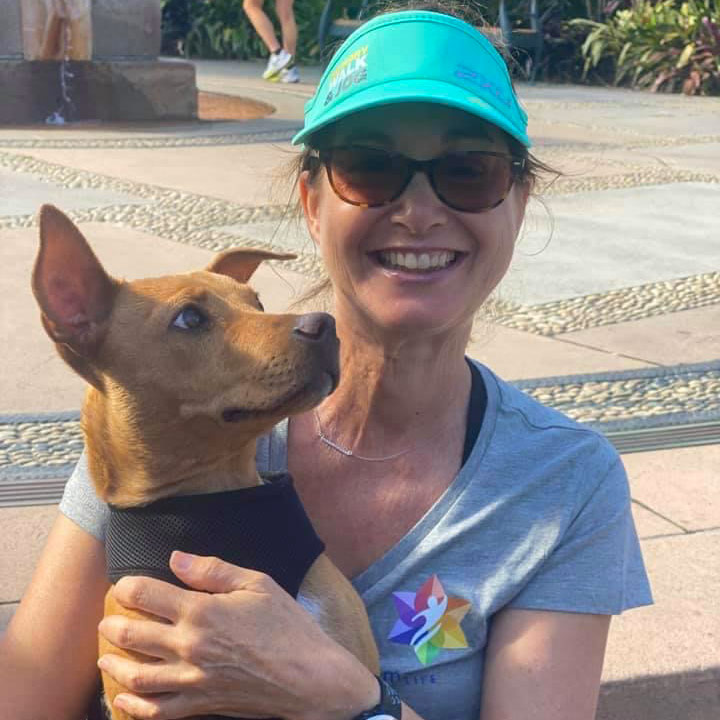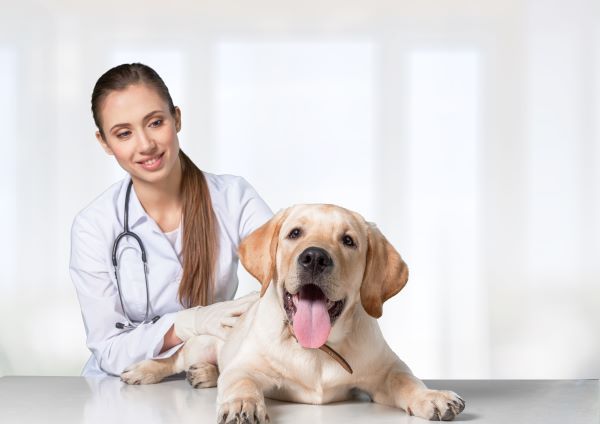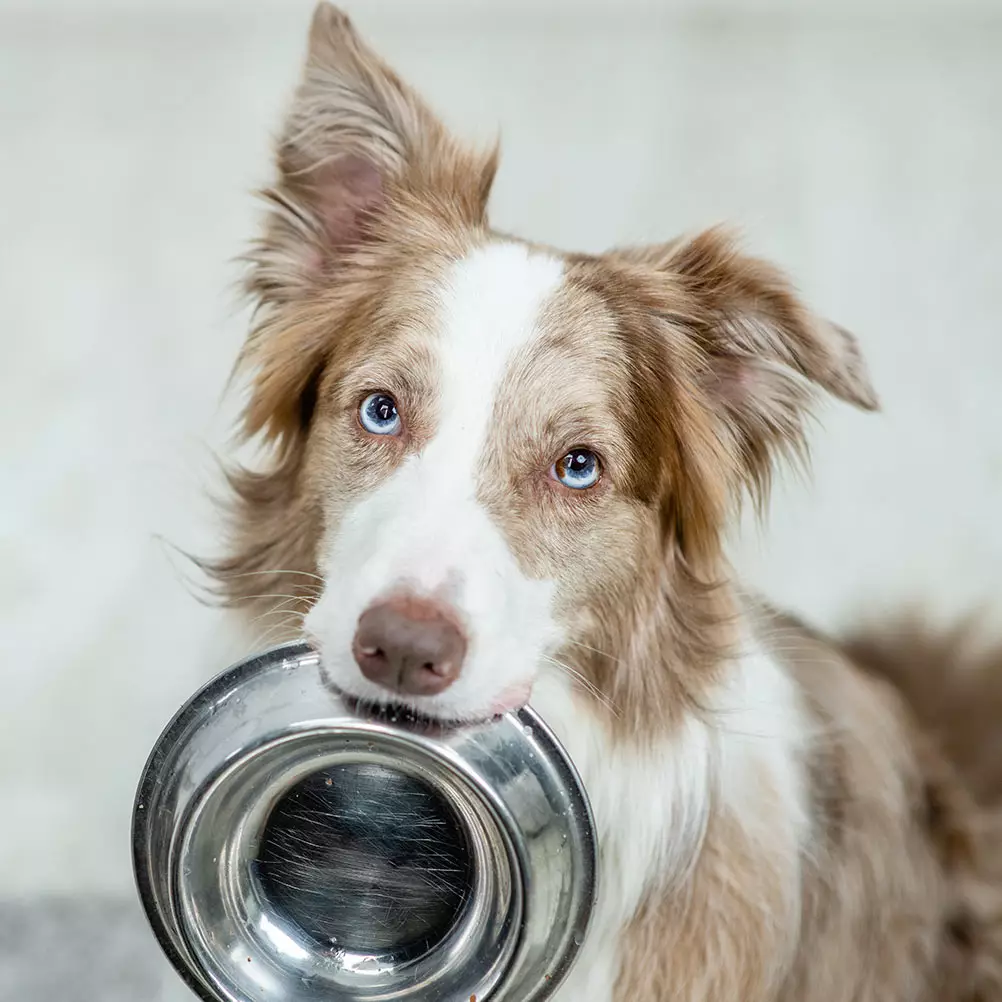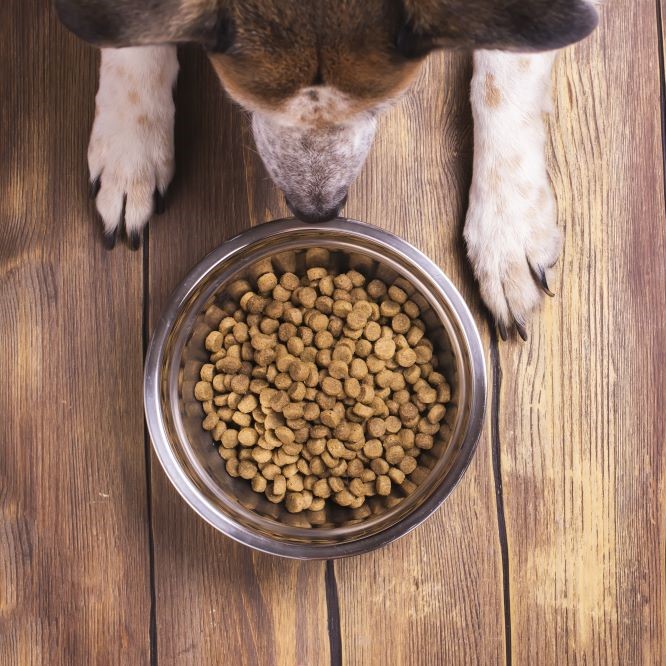The top 5 health problems for puppies

Our four-legged fur babies quickly become an integral part of the family, and we love them like our own kids! To give them the best start in life, it’s important to be aware of the most common health conditions* they may face during their first year, so that we know what to look out for.
We also bring you the best tips and advice on how to keep your puppy safe and healthy, because prevention is always better than cure.
Why do puppies get sick?
A puppy’s immune system isn’t as developed as that of an adult dog. This means they are more vulnerable to getting infections and catching diseases, which can sometimes be fatal.
Puppies and young dogs are exploring the world so it may not be surprising that gastrointestinal problems like diarrhoea, vomiting and gastritis (inflammation of the stomach lining) are common. Ear infections and skin irritations are other conditions that affect this age group of dogs.
Download our Puppy Guide
We know that bringing home & looking after a new puppy can be a big challenge! Get more tips from puppy experts about all aspects of looking after your new puppy, including toilet training, socialisation, health & much more.
The top 5 conditions in puppies:
1. Ear infections
Taking first place in the most common health conditions for puppies are outer ear infections (also called otitis externa), which is the inflammation of the outer part of the ear canal.
Puppies are more likely to get ear mite infections than bacterial ear infections. Itching, scratching, and head shaking are a few symptoms of ear mites. Mites in puppies’ ears can lead to secondary infections if left untreated, so it’s important to take prompt action if you suspect that your pup has ear mites.
PetSure data from 2022 shows that in pups, the average claimed amount to treat these pests was $185Ø with a maximum claimed amount of $726Ø.

Preventing ear infections in puppies
- The good news is that many topical flea products also treat ear mites, so chat to your vet about the best option for your pup and always ensure that parasite treatment is up to date.
- Clean your puppy’s ears every week or two and whenever the dog goes swimming, and keep the ears of floppy-eared breeds as dry as possible.
- If you notice your pup shaking their head, scratching their ears or if you see any discharge from the ears, seek veterinary advice right away.
2. Diarrhoea
Diarrhoea is the second most common health condition affecting pups, according to PetSure data for claims during 2022.
In puppies, diarrhoea can occur from changes in diet causing a simple tummy upset or indigestion, or it can be caused by viruses, bacteria, or parasites such as worms. Young and curious dogs may also be more likely to delve into rubbish bins, nibble on household plants or overeat, all of which can result in diarrhoea.
If – or, more likely, when – your puppy experiences diarrhoea, it’s best to seek advice from your veterinarian. As diarrhoea is also a sign of parvovirus, it’s a good idea to have your puppy checked by a vet if it lasts longer than a day, if it’s watery or has blood in it.
The average treatment cost for diarrhoea in 2022 was $416Ø, with the highest cost for treatment coming in at over $20,663Ø.
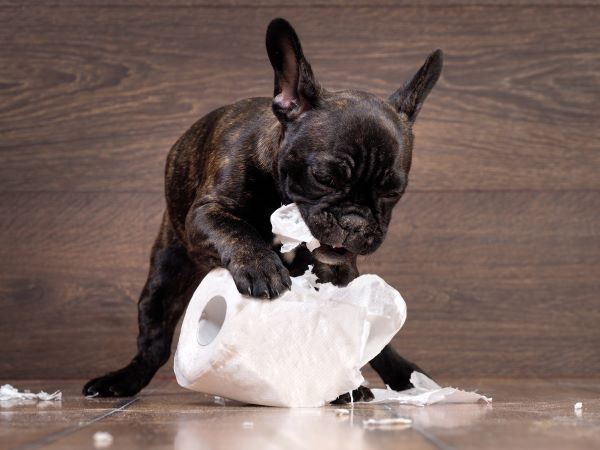
Preventing diarrhoea in puppies
Preventing diarrhoea in young dogs may not always be possible. Often, the true cause may never be known, and treatment is symptomatic. Here are some practical ways to help reduce the risk of tummy upsets:
- Introduce new foods gradually by mixing a small amount of the new food with the old food.
- Avoid giving young dogs cow’s milk, as dogs are often lactose intolerant, which can result in diarrhoea.
- Practice good hygiene around the home: wash bowls daily with hot soapy water and allow them to dry completely, ensure water is fresh daily, and pick up poos from the garden as soon as possible.
- Store medications, cleaning products and any other household toxins away from pets.
- Keep all rubbish, food scraps and human foods that are bad for dogs safely stored where your pup can’t access it.
- Ensure intestinal worming prevention and vaccinations are up to date.
- Only expose young puppies to trusted dogs who are fully vaccinated, and avoid dog parks or areas where they could come in contact with unvaccinated dogs or other dog’s waste.
3. Skin allergies
Skin allergies rank as the third most common health condition affecting puppies, according to PetSure claims data from 2022.
Proteins from plants, insects, animals or foods are common allergens in dogs. After exposure to an allergen, the body’s immune system can start to overreact, and this is what brings on an allergic reaction in the puppy’s skin.
Skin allergies can range from minor itchiness or redness right through to chronic, severe or ongoing skin disease with underlying allergies as the cause. Broken skin from scratching sets up a perfect environment for secondary bacteria to take hold.
Allergies can be complicated to diagnose and often they require ongoing, long-term treatment to help keep you pup itch-free and happy. In 2022, pet parents forked out $520Ø on average for treatment according to PetSure claims data. The highest cost for treatment was $17,460Ø.

Preventing skin allergies in puppies
- Avoid any known allergens or environments that may trigger a reaction, including long grass with seeds, or pollen.
- Keep your puppy’s skin and coat clean, and brush the coat regularly.
- A common cause of allergic reactions in dogs is flea bites, so stay up to date with flea treatment all year round.
- Examine your pup’s skin frequently to identify problems early.
4. Gastritis
Gastritis, the inflammation of the stomach lining, was the fourth most common health problem experienced by puppies in 2022.
This condition is generally caused from overeating, a change in diet or an allergy or sensitivity to something the puppy has ingested. In most cases, acute gastritis in pups is transient and lasts for a day or so before resolving. When gastritis persists more chronically, it can be a sign that there is something more serious going on.
According to PetSure claims data, pet parents claimed an average treatment cost of $523Ø with treatment costs as high as $28,232Ø in some cases.
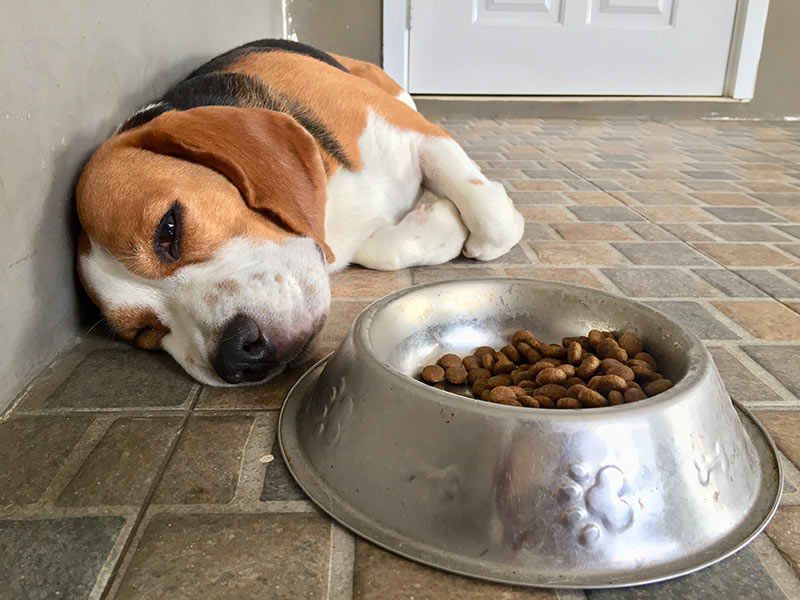
Preventing gastritis in puppies
- Ensure you don’t overfeed your puppy and that you follow the recommended portion sizes for your dog’s breed and weight.
- Feed your puppy a high-quality, premium puppy food free from by-products, artificial colours, flavours and fillers.
- Be vigilant when out on walks and prevent your pup from eating anything they shouldn’t.
- Avoid sudden changes in diet.
- Avoid rich, fatty table scraps.
- Keep bins secure.
5. Vomiting
Vomiting was the fifth most common health problem for puppies experienced by puppies in 2022.
In most cases, acute vomiting in puppies lasts for a day or so before resolving, and the underlying cause is often not identified. Eating raw or rotten food, human foods that not safe for dogs, plants, toxins or fungi can cause vomiting. Sudden changes in diet can also be a cause, while some dogs may overeat to a point where vomiting occurs.
In 2022, the average cost for treatment was $565Ø while the highest cost was over $26,661Ø.
If your dog presents with vomiting, speak to your veterinarian for advice.
Preventing vomiting in puppies
- Feed your puppy a high-quality, premium puppy food free from by-products, artificial colours, flavours and fillers.
- Avoid snacks that your dog might not be used to or that could contribute to tummy upsets.
- Observe your pup closely on walks and make sure they aren’t eating things they shouldn’t.
- Avoid sudden changes of diet.
- Feed to the recommended amount and don’t allow dogs to over eat.
- Make sure bins, kitty litter and plants are well out of reach.
Accidents
Puppies, like children, are very adventurous and accident prone, and often end up accidentally hurting themselves.
The top 3 accidental injuries in puppies are:
- Fractures
- Ingestion of foreign objects
- Bite wounds (from other dogs / snakes)
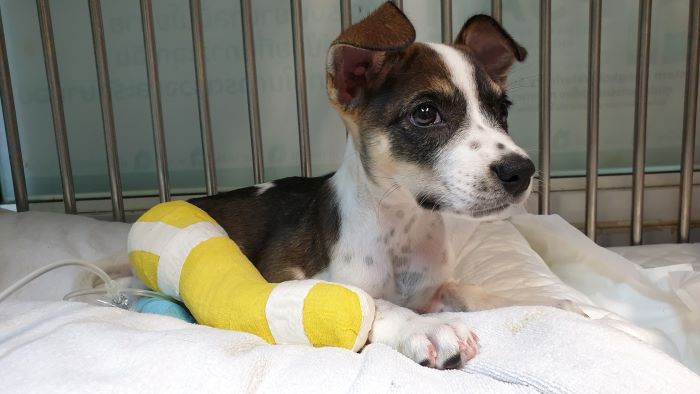
Preventing accidents in puppies
- Keep your pup’s claws trimmed so they don’t get overgrown and catch on things.
- Socialise your pup with other animals from an early age to help prevent fights and bite injuries.
- Check your garden or yard for hazards that could cause wounds or other injuries.
- Make sure your property is secure to avoid escapes.
- Warm up gradually into exercise to avoid injuries such as torn ligaments.
In conclusion
Knowledge is your best weapon in keeping your puppy safe during the somewhat challenging, but never dull, early months of their young life.
Knowing what to look out for and when to call the vet, and taking the necessary precautions to prevent illness or accidents from occuring, allows you to relax and enjoy the all-too-brief puppy period and be the best pet parent you can be!
Puppies are very adventurous and highly accident prone, and often end up hurting themselves whilst they are still growing. Their underdeveloped immune system means they are also vulnerable to getting infections and catching diseases.
Consider pet insurance to help protect you and your puppy from the start. Learn more about Puppy Insurance
ØBased on PetSure claims data, 2022 calendar year. Reimbursement for these claims under a pet insurance policy would be subject to limits, such as annual benefit limits or sub-limits, benefit percentage, applicable waiting periods and any applicable excess. Cover is subject to the policy terms and conditions. You should consider the relevant Product Disclosure Statement or policy wording available from the relevant provider. Please note that values calculated are based on all claims for that condition and medically related conditions in each calendar year.
Bow Wow Meow Pet Insurance can help protect you and your dog should an unexpected trip to the vet occur.
-
Find out more about our dog insurance options
-
Get an online pet insurance quote
Bow Wow Meow is proud to have been awarded winner of Canstar’s ‘Most Satisfied Customers’ Award in the Pet Insurance category for both 2024 and 2025!
Bow Wow Meow is proud to have been chosen as Product Review’s Pet Insurance Award Winner every year from 2018 to 2025! This is based on 2,995 independent customer reviews (as at 21/01/2025), with an overall rating of 4.3*
Google Review rating = 4.5* (based on 968 reviews)
Trust Pilot rating = 4.6* (based on 531 reviews)
Bow Wow Meow is proud to have been chosen as Product Review’s Pet Insurance Award Winner every year from 2018 to 2025! This is based on 2,995 independent customer reviews (as at 21/01/2025), with an overall rating of 4.3*
Google Review rating = 4.5* (based on 968 reviews)
Trust Pilot rating = 4.6* (based on 531 reviews)
Bow Wow Meow has been chosen as a winner in the Finder Pet Insurance Awards 2024. Finder’s panel of experts analysed over 140 quotes to award our Ultimate Care Plan the winner of the “Pet Insurance – Value” category.

